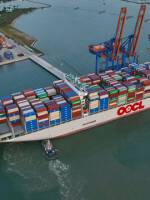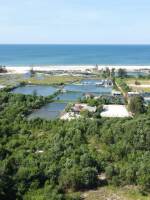Research of bioplastic production from Cottoni Seaweed (Kappaphycus alvarezii), using wastewater at aquatic farms in central Việt Nam, could become an alternative solution for fossil fuel-based plastics and reduce plastic waste and hazardous microplastic pollution.
A research group at the University of Đà Nẵng-University of Technology and Education has introduced their finding on growing the seaweed in wastewater at some aquatic farms in central Việt Nam in collected carrageenan, a natural gelling agent extracted from red seaweed, as a key material for bioplastic production.
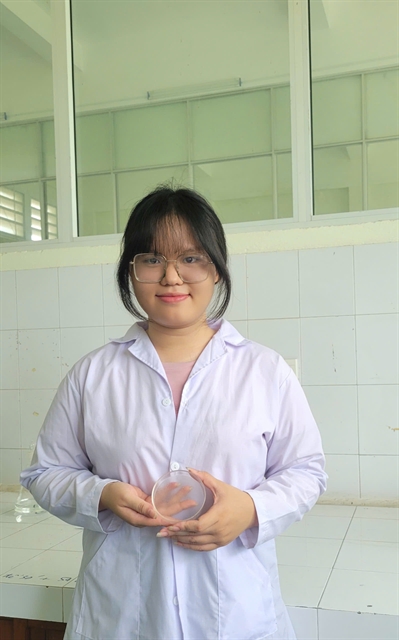
Head of the research team Trần Minh Thảo said a reduction of plastic use in trade would limit plastic pollution, which is an alarming problem in many countries including Việt Nam, especially marine environment pollution.
Thảo said the daily use of plastic bags and single-use plastic tools is very popular at shops and supermarkets, yet a cheap and comprehensive solution has been offered to stop the use of plastic bags and other polluting plastic ware.
“We recognised that wastewater, which contains many organic substances, is directly discharged to the environment, but seaweed can strongly grow from aquatic farm wastewater,” Thảo explained.
“The group collected the seaweed, Cottoni Seaweed (Kappaphycus alvarezii), one of the best selected species for our bioplastic studies, to extract carageena for bioplastic production,” he said.
He added some decomposable material, including starch, was used to make environment-friendly packaging, but it is not a sustainable option for food security.
Thảo said an aquatic farm on 4,000sq.m often releases 4,000 cubic metres of untreated wastewater each day, but the farm can recycle wastewater by growing seaweed at the farm to create a key material source for bioplastic.
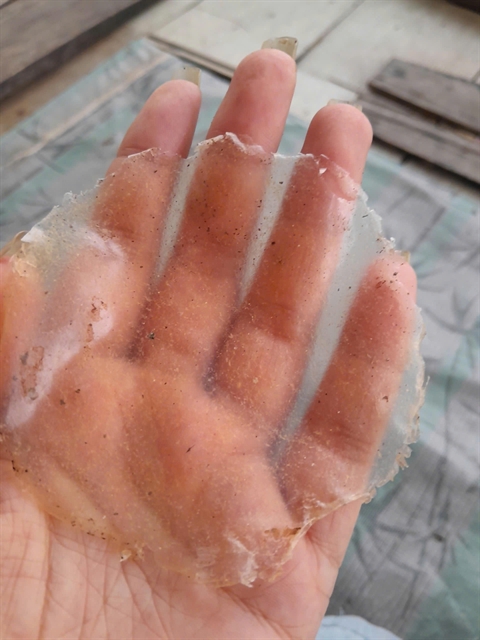
He unveiled that some decomposable plastic bags at some supermarkets still discharge microplastic into environment, but it does not completely disintegrate in soil.
“We produced samples of bioplastic bags from seaweed-extracted carageenan, and it was completely dissolved in soil within two weeks,” Thảo shared.
“The group will focus on high-value bioplastic devices in electronics and high-tech industries for a long-existence environment-friendly material.”
The team plans to start commercial production of the bio-plastic in co-operation with aquatic farms and manufacturers nationwide by the end of 2025 or early 2026, Thảo said.
In past years, bio-researchers from the university also started a bio-based waste treatment project at Thọ Quang fishing port, and a vetiver (Vetiveria Zizanioides) grass-based system to treat leaks at Khánh Sơn dump in the city.
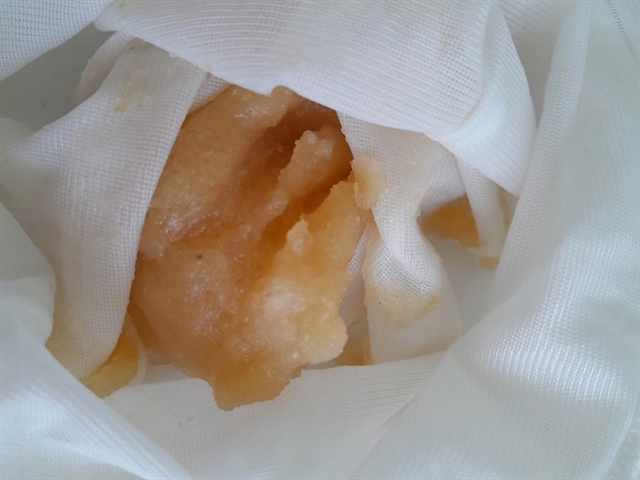
In a survey by local lecturers at the University of Đà Nẵng-University of Technology and Education and Dr. Emilie Strady from France, microplastics contamination at beaches, lakes and channels in the city reached serious levels with 100 plastic items found in one cubic metre – up to five times the average of microplastic contaminated sites in the world.
According to Greenhub, an NGO, the city discharges more than 1,000 tonnes of waste each day, of which more than 22 per cent is plastic.
The city targets to limit waste to dump at under 20 per cent of the total daily amount.
(VNS)


